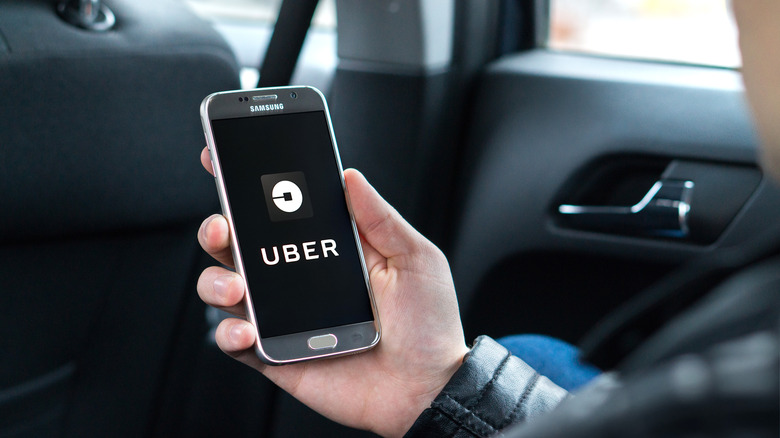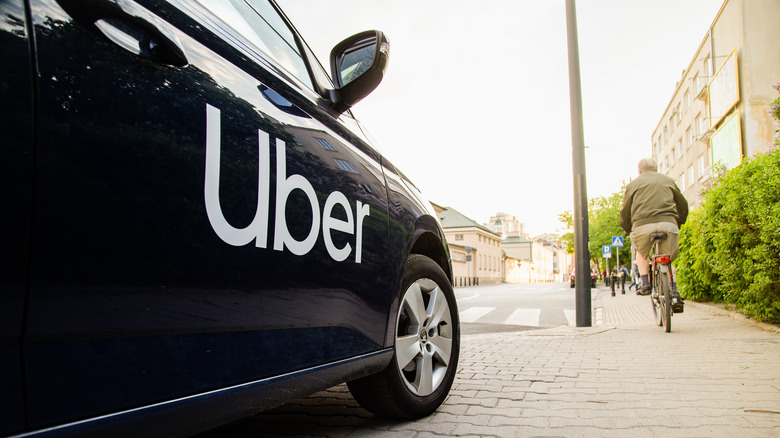How Uber Is Delivering Emergency Food Relief In Ukraine
Russia's ongoing attacks on Ukraine have not only resulted in thousands of civilian casualties, but have also created global supply chain issues (via IPS). Russia's naval blockades threaten the food supply of Ukraine and nations around the globe. According to the UN, Russia and Ukraine produce "30 percent of the world's wheat and barley, one-fifth of its maize, and over half of its sunflower oil." 1.7 billion people depend on these products to survive, and 20 million tons of wheat and corn are currently trapped at Ukraine's ports, blocked by Russian forces (via CBS News).
The war has not only affected crop transport, but also the potential for future harvests. Harvest Holdings reported to NBC News that landmines are scattered throughout 20,000 acres of farmland, while another 350,000 acres are occupied by Russian forces. Ukraine's infrastructure has also been impacted by the ongoing war, making it difficult to transport life-saving supplies within the country. Since the start of the war, The United Nations World Food Programme has delivered food to over 1 million people in Ukraine, and the organization recently announced a partnership with Uber to reach even more citizens in need (via WFP).
Uber's smaller vehicles can better navigate the war-torn country
Obtaining food and supplies in war-torn Ukraine has proven difficult. iNews reported in March that Ukrainian volunteers had to navigate roads littered with shrapnel and "burned-out cars" to make deliveries, while CBS notes that some people are "too afraid to leave the house" for fear of attack.
The United Nations World Food Programme (WFP), which has been delivering food and money to citizens in need since the start of the war in Ukraine, has partnered with Uber in an effort to solve these logistical issues (via Uber). WFP already has warehouses set up to store food, and Uber's smaller vehicles can make more efficient deliveries and reach areas that the organization previously could not. And because Uber created a custom version of its platform specifically for WFP, this partnership will also allow for better tracking of deliveries.
This collaboration has already facilitated successful supply deliveries in the Ukrainian city of Dnipro, per Uber, and future deliveries are planned for Lviv, Vinnytsia, Kyiv, Chernivtsi, and other cities within 100km of WFP warehouses. In addition to this, Uber has also donated $250,000 to World Food Program USA to further aid humanitarian efforts in Ukraine. With the help of this donation, WFP is projected to provide food and cash to over 3 million people monthly by the end of June (via Uber).

